Understanding addition Math Worksheets for 8-Year-Olds
8 filtered results
-
From - To
Welcome to our "Understanding Addition Math Worksheets for 8-Year-Olds" page! Tailored specifically for young learners, our worksheets provide an engaging way for children to grasp the concept of addition. Utilizing colorful visuals and fun exercises, these resources encourage kids to practice addition skills through various activities, including solving word problems and filling in number sentences. Our carefully designed materials aim to enhance mathematical understanding while building confidence. Whether used in the classroom or at home, these worksheets support your child's learning journey and foster a love for math. Explore now and empower your child to become an addition whiz!
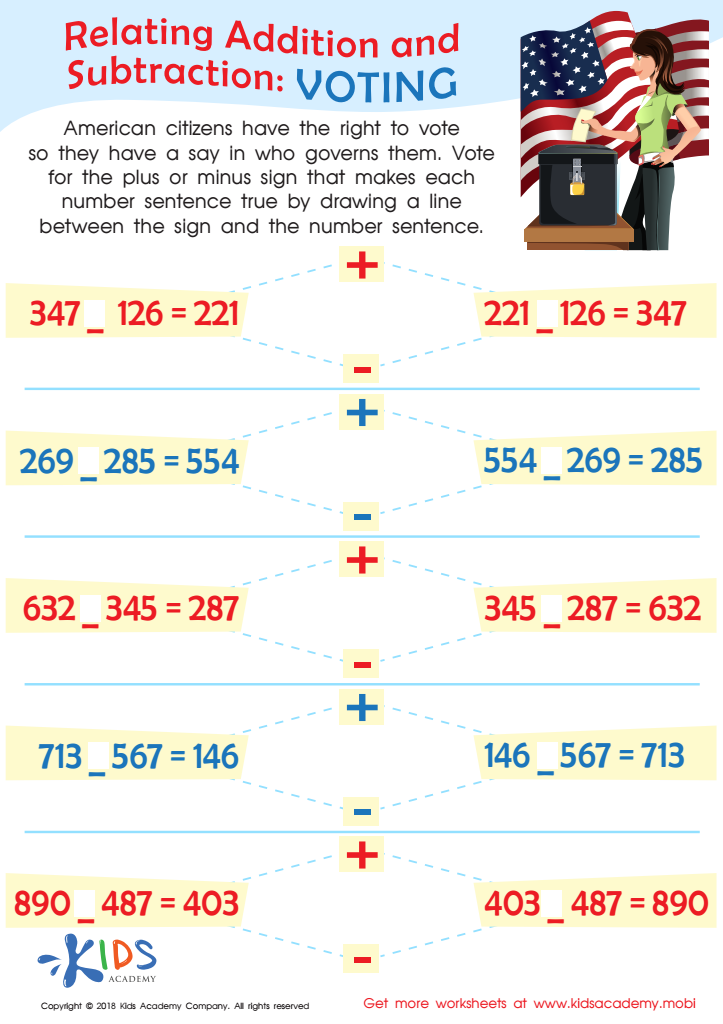

Voting Worksheet
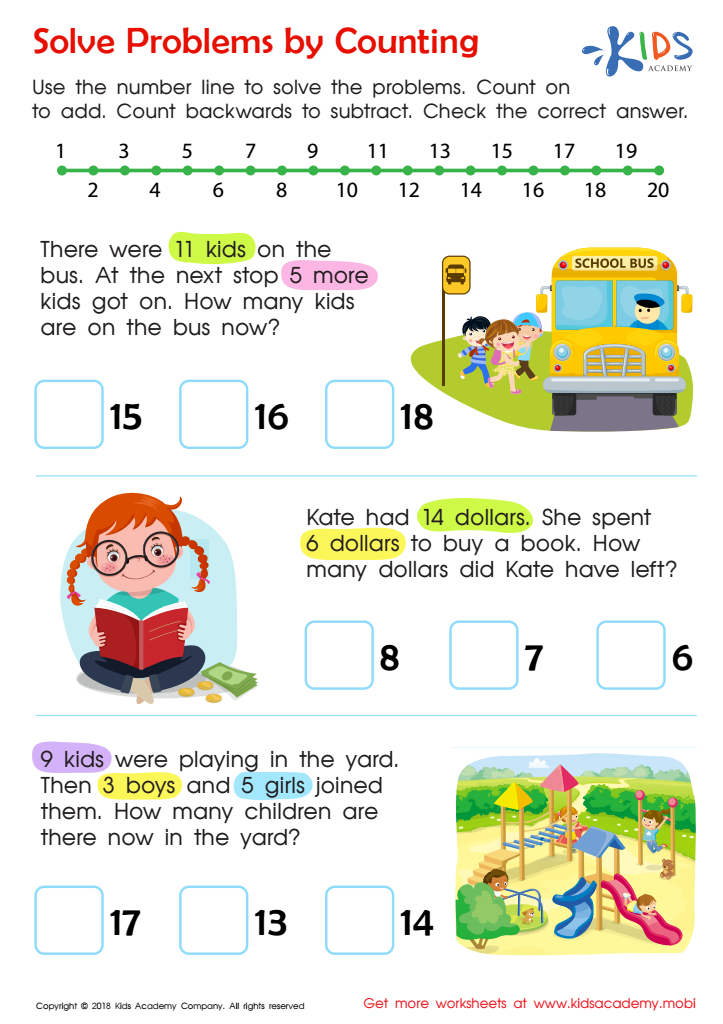

Solve Problems by Counting Worksheet
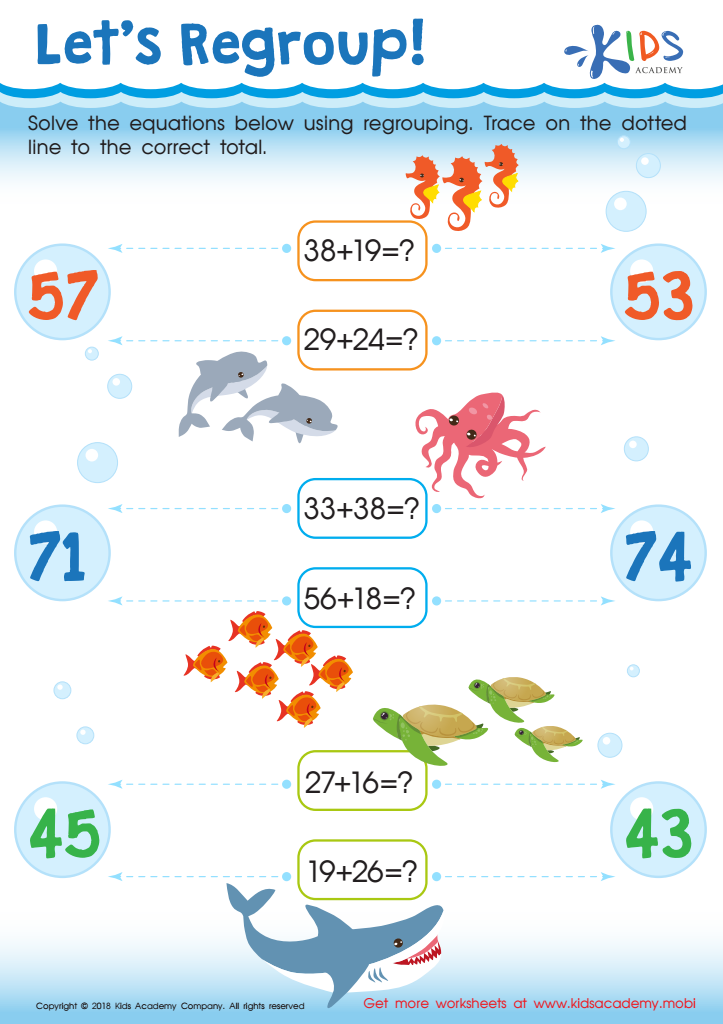

Let's Regroup! Worksheet
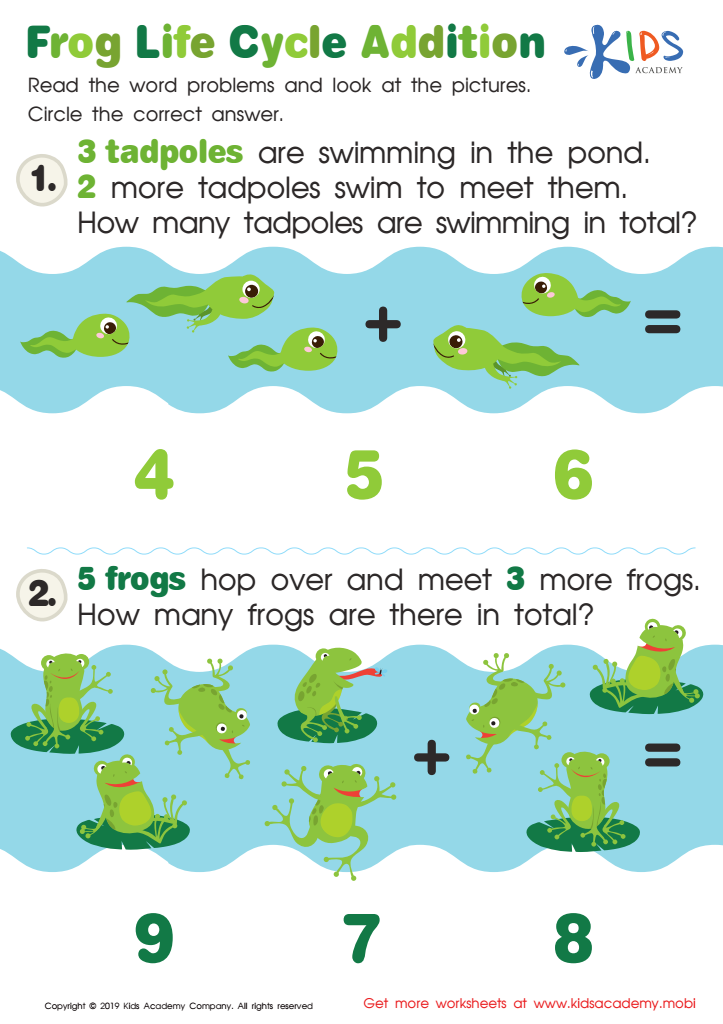

Frog Life Cycle Addition Worksheet
Understanding addition is a fundamental building block for children's mathematical development, especially for 8-year-olds who are typically in the third grade. At this age, children are not just memorizing basic addition facts; they are beginning to grasp more complex concepts such as multi-digit addition, word problems, and the relationship between addition and subtraction.
Parents and teachers should care about this development for several reasons. First, solid addition skills promote confidence in mathematics, laying a strong foundation for future topics such as multiplication, division, and algebra. Mastering addition helps children develop problem-solving skills that are applicable in everyday life.
Furthermore, grasping addition enhances critical thinking and logical reasoning abilities. When learners can add efficiently, they are better equipped to tackle more advanced math problems and can relate mathematical concepts to real-world situations.
Additionally, supporting children's understanding fosters a positive attitude towards learning. When parents and teachers engage with children in math, it can create a supportive environment where kids feel comfortable exploring and asking questions. Ultimately, caring about children's understanding of addition can lead to lasting academic success and a love for learning in mathematics and beyond.


 Assign to My Students
Assign to My Students
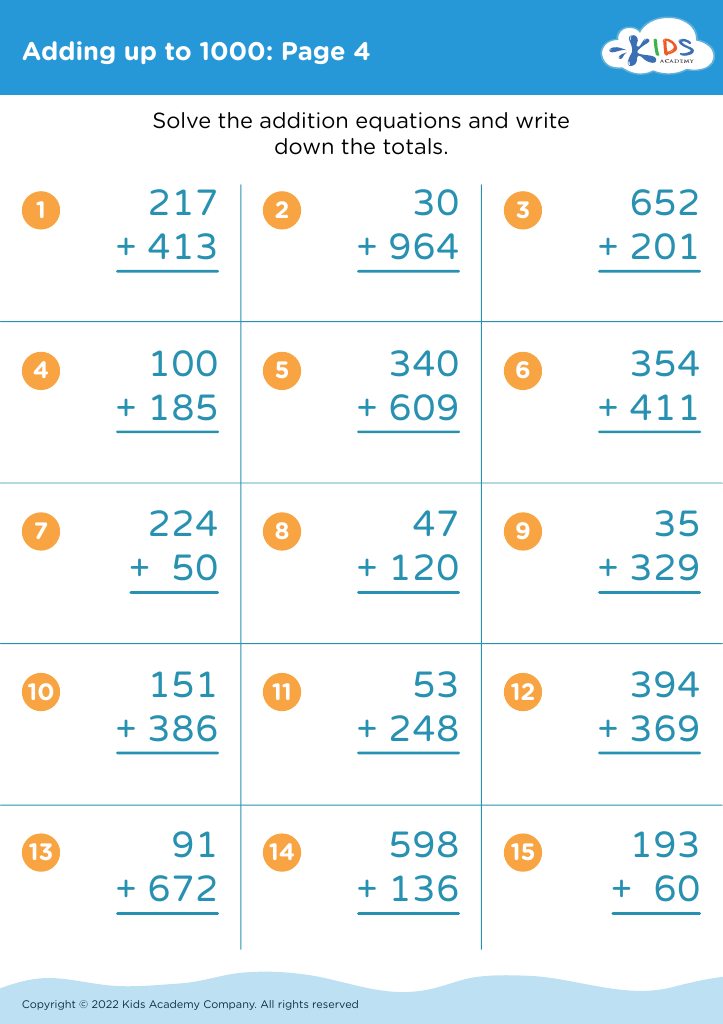
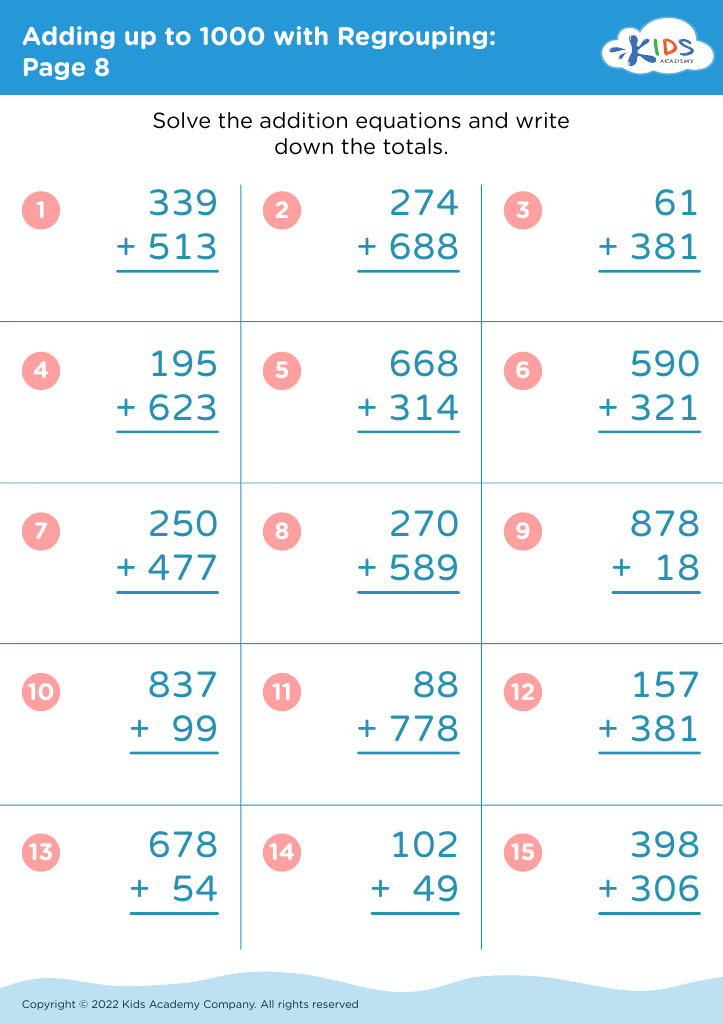
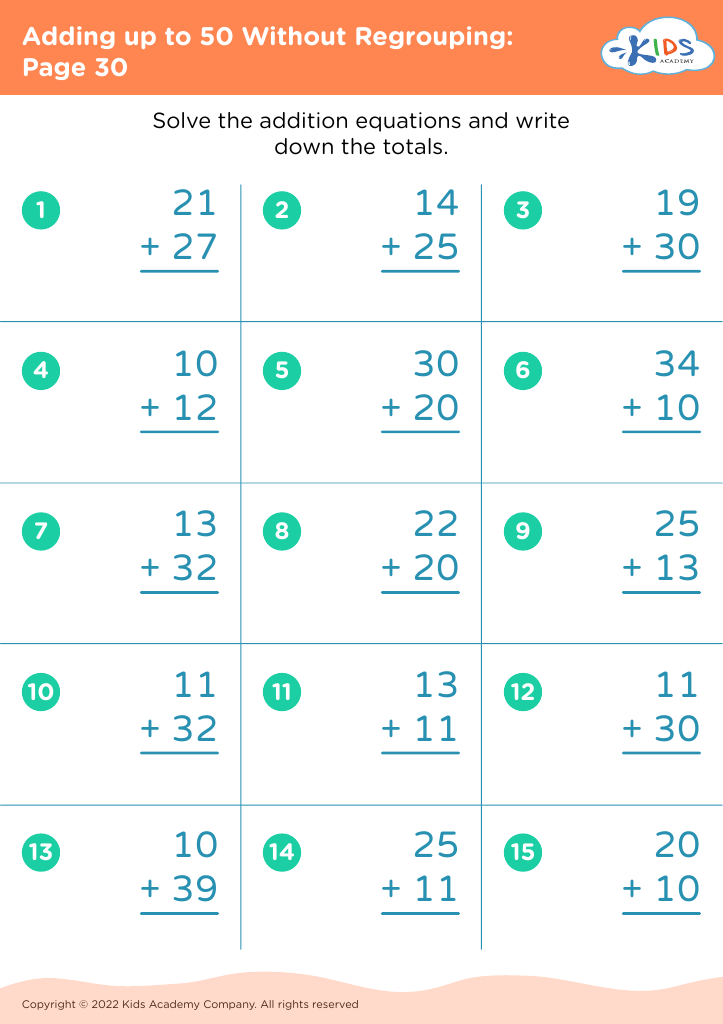



.jpg)















